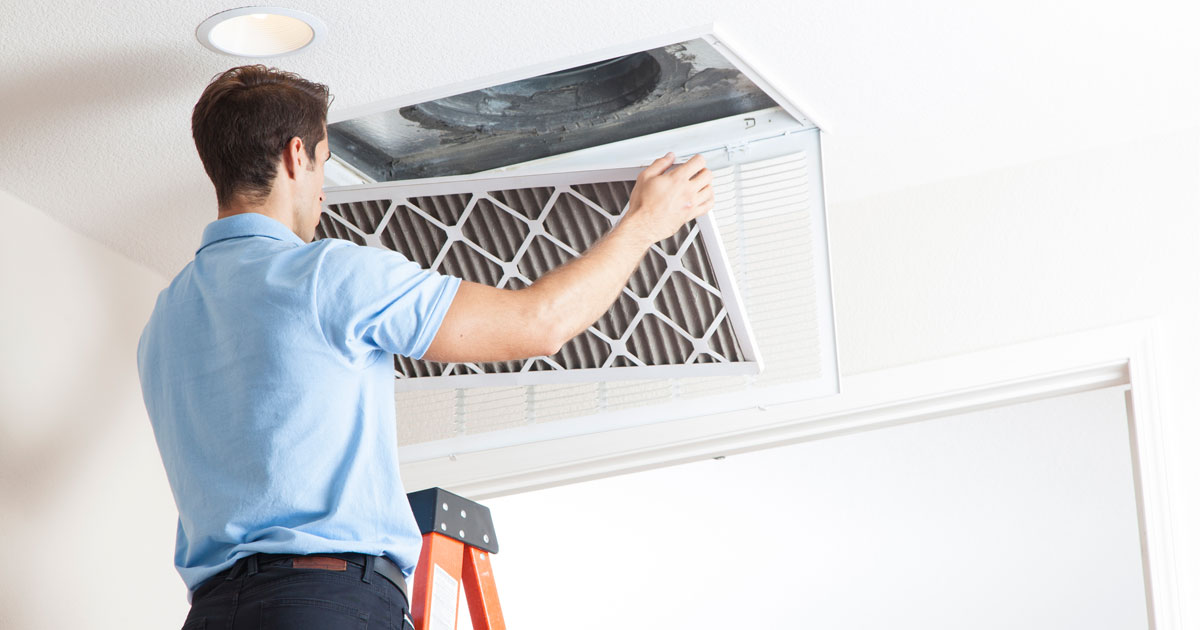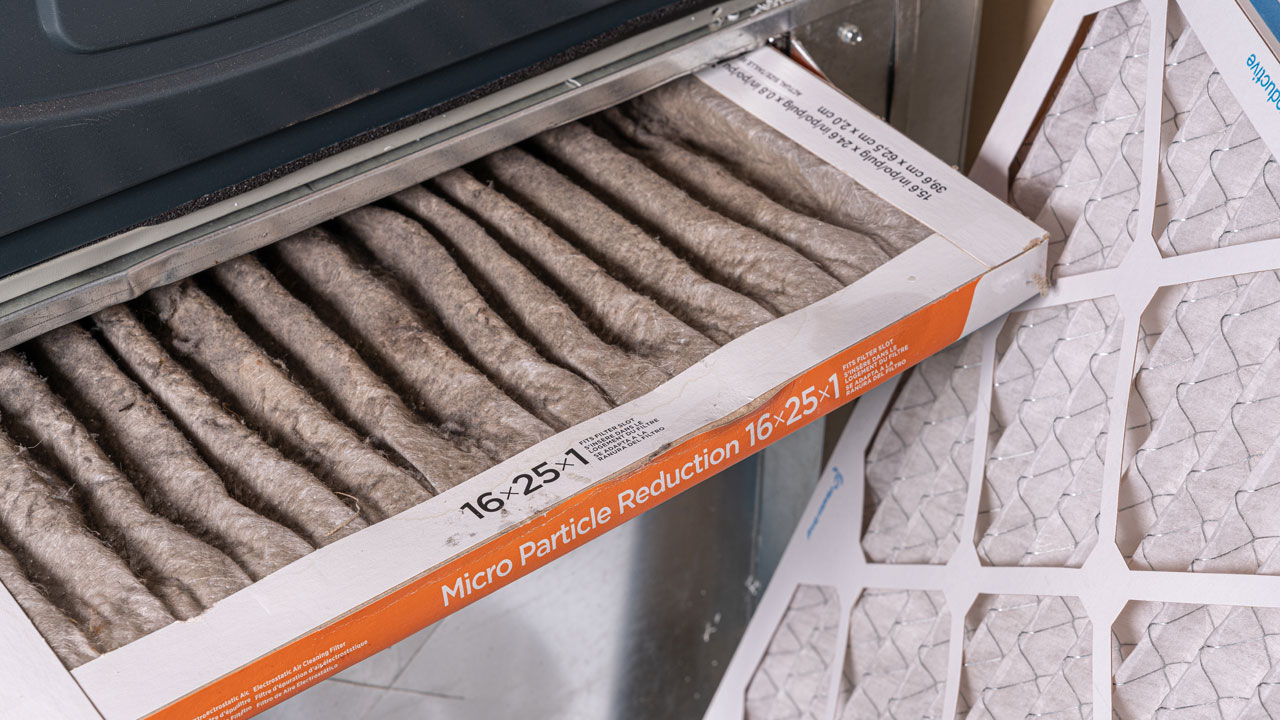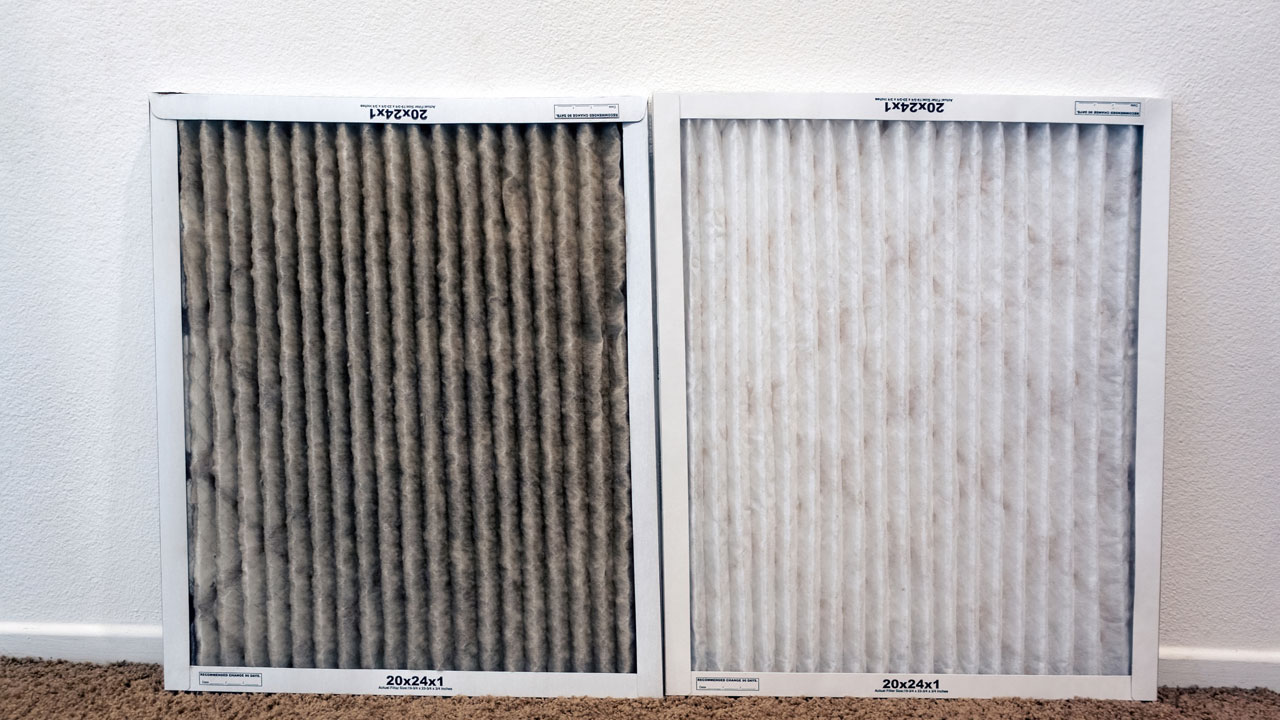How to Change Home Air Filters: Complete Sizing and Replacement Guide
 Andrew
November 26, 2025
#airfilters
#filterreplacement
#furnacefilters
#HVAV
#MERV
Andrew
November 26, 2025
#airfilters
#filterreplacement
#furnacefilters
#HVAV
#MERV

- Clear up the confusion between actual and nominal filter dimensions so you can order the right size every time
- Walk you through the step-by-step process of safely replacing your home air filter
- Help you determine the best filter type and replacement frequency for your specific household needs
- Show you why buying filters in bulk saves money and keeps your HVAC system running efficiently
Understanding Air Filter Dimensions: Actual vs. Nominal
Actual dimensions represent the precise measurements you get when using a tape measure on your existing filter—the real height, length, and width. Nominal dimensions are rounded up to the nearest inch and represent what filters are sold under in stores and online. For example, if your air filter measures 15.5" x 19.75" x 0.75", the nominal dimensions will typically be 16" x 20" x 1".
This standardization system exists because HVAC manufacturers design filter slots with specific tolerances, and the nominal sizing ensures compatibility across different brands while allowing for slight manufacturing variations. Most standard air filter sizes for home applications follow this nominal system, making it easier for consumers to find replacements once they understand the conversion.
When measuring your existing filter, always use the nominal dimensions for purchasing. Height and length measurements are interchangeable in listings, so a filter labeled "16x20x1" may also appear as "20x16x1" depending on the retailer. The key is ensuring all three dimensions match your requirements. The wrong size filter simply won't work.
Common Home Air Filter Sizes
The most common standard air filter size for home use includes:
- 16" x 20" x 1"
- 16" x 25" x 1"
- 20" x 20" x 1"
- 14" x 20" x 1"
- 12" x 12" x 1"
These 1" filters are widely used for affordability and compatibility, but you'll also find systems with specialized housing for thicknesses including 2", 4", and 5" (or more).

Step-by-Step Filter Replacement Process
1. Turn Off Your HVAC System
Shut off your heating or cooling system before removing the old filter. This prevents the system from drawing debris into the ductwork during the change process and keeps your hands away from moving parts.
2. Locate the Filter Slot
Most residential systems have the filter slot located either in the return air duct near the unit or in a wall-mounted return vent. Some systems have multiple filters, so check all possible locations. You may need a screwdriver to remove some vents or filter covers.
3. Remove the Old Filter
Carefully slide the old filter out slowly to avoid shaking loose accumulated debris. Note the airflow direction arrow on the filter frame because the new filter must be installed with the same orientation. If you forget, the arrow should point toward the furnace in the direction of the airflow.
4. Measure if Needed
If you're unsure about the size, measure the filter slot opening rather than the old filter, which may have compressed over time. Remember to use nominal dimensions for ordering replacements.
5. Label and Install the New Filter
Write the date on the filter and consider setting a reminder on your phone for the next filter change. When buying in bulk, some manufacturers will send email reminders. Insert the new filter with the airflow arrow pointing toward the HVAC unit. The filter should fit snugly without forcing it into place or bending the paperboard frame. Gaps around the edges allow unfiltered air to bypass the system entirely.
Once your fresh filter is in place, don't forget to turn your system back on.
When to Change and Which Filter is Best
How often to change a home air filter depends on several factors including filter efficiency rating, household conditions, seasonal usage, and filter dimensions. Standard filters typically require replacement every 1–3 months, while higher-efficiency options may need more frequent changes due to increased particle capture. Thicker 4" and 5" filters, though more expensive, may last six months to a year.
The question "which home air filter is best" depends on your system's capabilities and household needs. Beyond size, you'll need to know about MERV ratings, which stands for Minimum Efficiency Reporting Values. MERV 8–11 filters provide excellent performance for most homes without restricting airflow, while MERV 13 filters offer superior filtration for homes with allergies or pets—provided your system can handle the increased resistance. Read more about MERV (as well as MPR and FPR equivalents).

Smart Purchasing: Why Bulk Ordering Makes Sense
Buying filters in bulk not only saves money but ensures you always have a replacement ready during peak HVAC seasons when clean filters are most critical for system efficiency.
A year's supply of filters purchased at once typically costs 20–30% less than individual purchases over time, and you'll avoid the common scenario of running a clogged filter longer than recommended simply because you haven't made it to the store.
This proactive approach protects your HVAC investment while maintaining consistent indoor air quality.
Essential HVAC Maintenance Beyond Filter Changes
Proper filter replacement represents just one component of effective HVAC maintenance. Simple additional steps that homeowners can perform include keeping intake vents and outdoor units clear of debris, checking thermostat settings seasonally, and ensuring ductwork connections remain sealed. These basic maintenance tasks, combined with regular filter changes, can improve system efficiency by 15–20% and extend equipment life significantly.

The investment in quality filters and consistent replacement schedules pays dividends through lower energy bills, improved air quality, and extended equipment life. When you understand proper sizing and establish a replacement routine, you transform filter changes from a reactive chore into proactive system protection that saves money and ensures comfort year-round.






